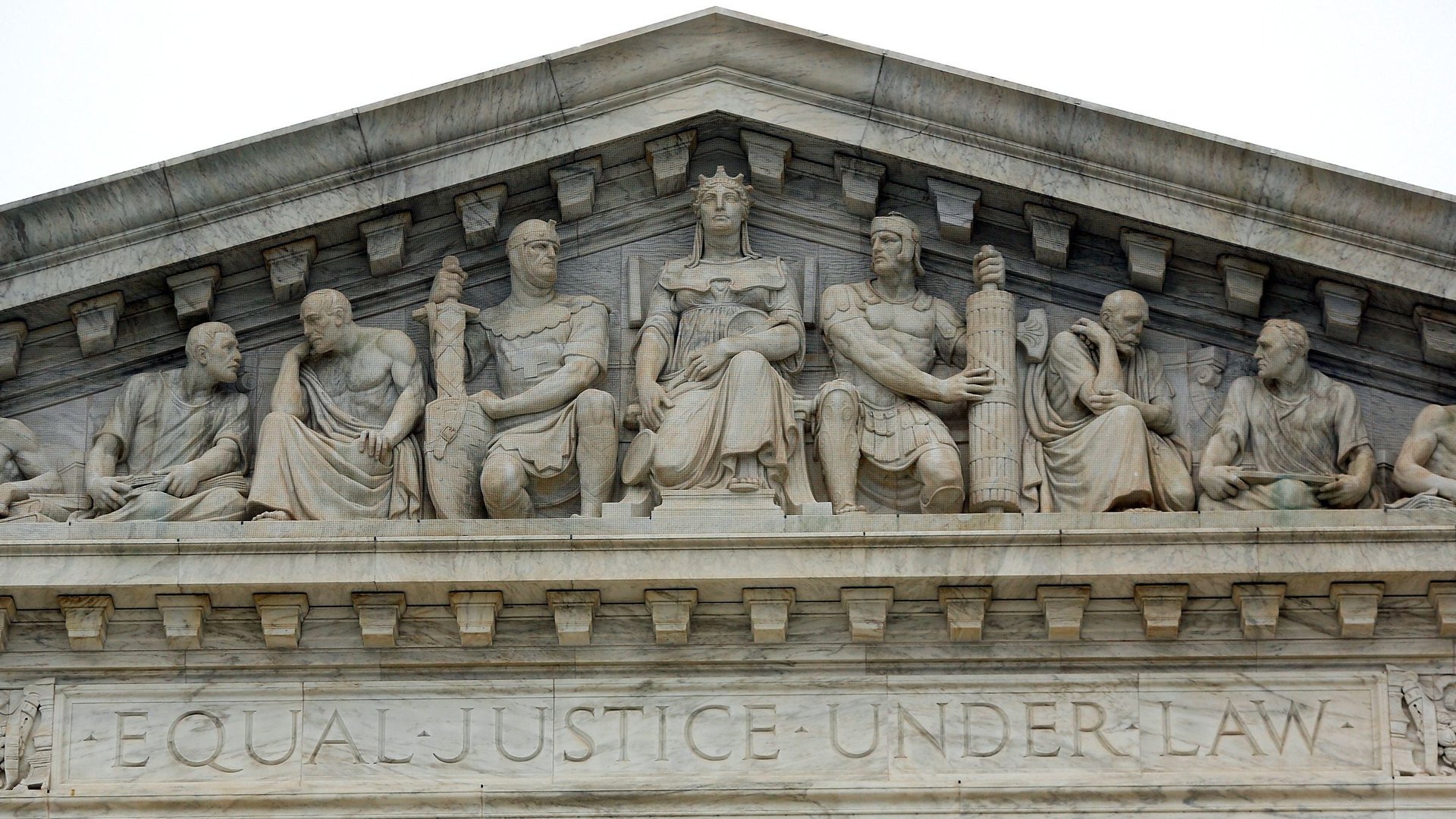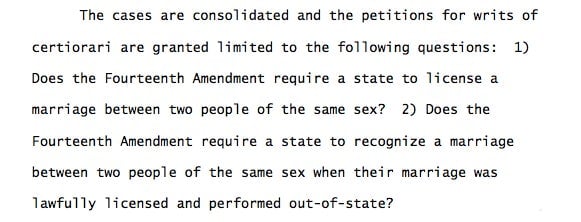The US Supreme Court will rule on a national right to same-sex marriage
The US Supreme Court announced that it would consolidate a number of cases concerning gay marriage and by June will release an omnibus ruling on the rights of gay and lesbian couples to marry.


The US Supreme Court announced that it would consolidate a number of cases concerning gay marriage and by June will release an omnibus ruling on the rights of gay and lesbian couples to marry.
The court’s terse acceptance of the appeals, from the citizens in Michigan, Ohio, Kentucky, and Tennessee, laid out the questions it will attempt to settle:

The 14th amendment to the US constitution guarantees equal protection under the law to all citizens. So far, gay marriage is legal in 36 states and prohibited in 14; the bans have prompted multiple challenges in court.
Same-sex couples have spent years stringing together legal victories, including landmark rulings in 2013 that forced the federal government and the state of California recognize gay marriages. This case is expected to determine a unified national precedent for same-sex marriage. It was prompted after a US appeals court, the level below the Supreme Court, upheld bans in four states (the ones now involved in the consolidated case), creating a disjunction in national law that had to be resolved.
Same-sex marriage advocates are pleased that the highest court in the land is taking up the case, confident that the recent trend of legal decisions will lead to a ruling in their favor. Opponents of equal marriage rights, meanwhile, hope that the case will be their chance to re-establish a state’s right to define marriage as it sees fit.